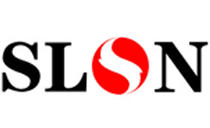Rfid Application in Asset Management
RFID asset management provides numerous benefits that can help businesses streamline their operations and increase their bottom line. The automation and efficiency provided by RFID technology allow companies to save time and money while reducing the risk of losing assets. The ability to capture detailed asset information rapidly enables businesses to track their assets' whereabouts and status, providing them with the necessary data to make informed decisions. Improved inventory and asset visibility can also help companies mitigate risks, prevent theft, and reduce losses. The reduction of manual labor and errors can lead to improved employee productivity, and the integration with third-party logistics providers and financial systems can help companies track KPIs and update their financial data. Overall, RFID asset tracking can be a valuable tool for businesses looking to optimize their asset management processes.
RFID asset management systems use RFID tags to track and identify individual assets. These tags are loaded with information about the asset and are used to automate the management and locating process. The system uses radio frequency identification to monitor business equipment and other assets, providing real-time tracking and management capabilities. HID Global's asset tracking solutions utilize RFID tags in different frequencies to ensure seamless inventory tracking and management. Cloud-based RFID asset tracking systems, such as Asset Infinity, can automate all asset management and maintenance requirements, allowing businesses to manage their assets more efficiently and effectively. These systems can also provide valuable insights into asset usage, maintenance schedules, and other important metrics, helping businesses to make informed decisions and optimize their operations.
RFID technology has numerous applications in asset management. Some examples of how RFID can be used in asset management include:
Asset tracking: RFID tags can be attached to assets, providing businesses with real-time information on their location, usage, and maintenance needs. This can help businesses optimize their asset usage, reduce losses, and improve inventory management.
Inventory management: RFID technology can be used to track inventory levels, monitor stock movements, and automate replenishment processes. This can help businesses reduce stockouts, prevent overstocking, and improve overall inventory accuracy.
Maintenance management: RFID tags can be used to track asset maintenance schedules, record maintenance history, and automate maintenance workflows. This can help businesses reduce maintenance costs, improve asset uptime, and extend asset lifecycles.
Asset auditing: RFID tags can be used to quickly and accurately audit assets, reducing the time and effort required for manual auditing processes. This can help businesses ensure compliance with regulatory requirements and improve asset tracking accuracy.
Overall, RFID technology has a wide range of applications in asset management providing businesses with valuable insights into asset usage, maintenance needs, and inventory levels. By leveraging RFID technology, businesses can optimize their asset management processes, reduce costs, and improve their bottom line.
SLon is a professional company engaged in RFID research and development and to provide intelligence and information system solutions for high-tech enterprise, our long-term worldwide schools, banks, supermarkets, tourist attraction, intelligent buildings, government agencies and related industries to provide the most advanced security management services.


